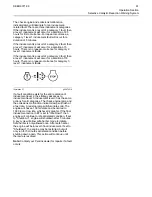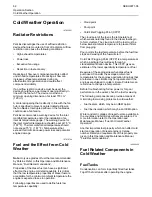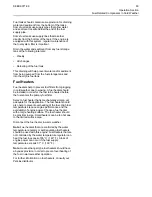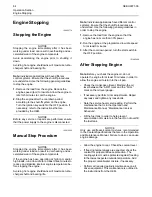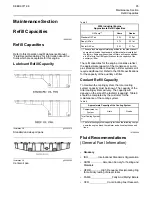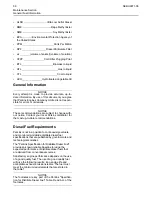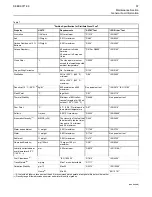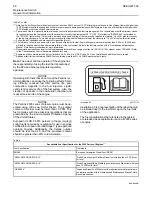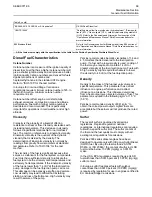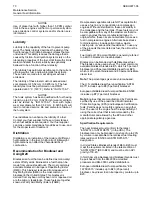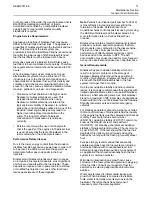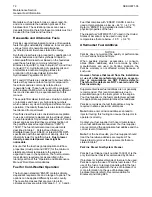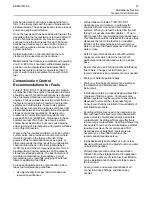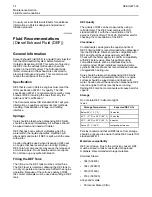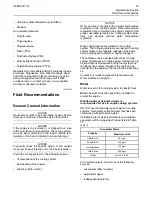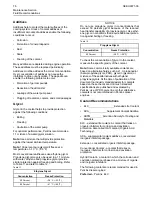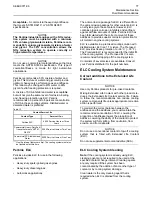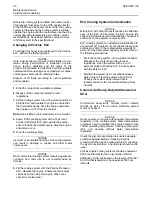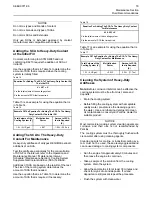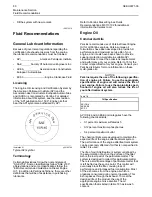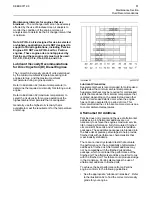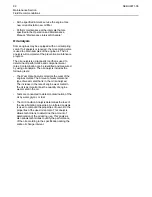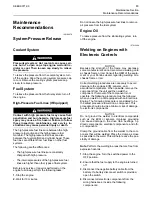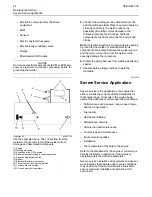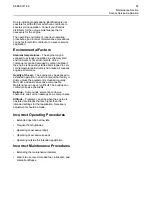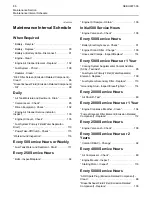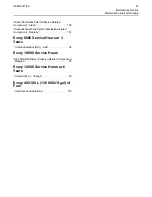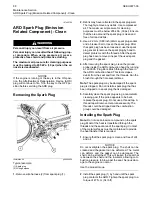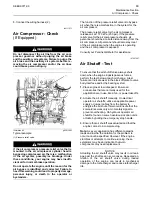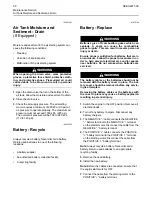
• Chromium Nickel Molybdenum (CrNiMo)
• Titanium
Non-metallic materials:
• Polyethylene
• Polypropylene
• Polyisobutylene
• Teflon (PFA)
• Polyfluoroethylene (PFE)
• Polyvinylidene fluoride (PVDF)
• Polytetrafluoroethylene (PTFE)
Materials NOT compatible with DEF solutions include
Aluminum, Magnesium, Zinc, Nickel coatings, Silver,
and Carbon steel and Solders containing any of the
above. Unexpected reactions may occur if DEF
solutions come in contact with any non-compatible
material or unknown materials.
i07675883
Fluid
Recommendations
General
Coolant
Information
NOTICE
Never add coolant to an overheated engine. Engine
damage could result. Allow the engine to cool first.
NOTICE
If the engine is to be stored in, or shipped to an area
with below freezing temperatures, the cooling system
must be either protected to the lowest outside tem-
perature or drained completely to prevent damage.
NOTICE
Frequently check the specific gravity of the coolant
for proper freeze protection or for anti-boil protection.
Clean the cooling system for the following reasons:
• Contamination of the cooling system
• Overheating of the engine
• Foaming of the coolant
NOTICE
Never operate an engine without water temperature
regulators in the cooling system. Water temperature
regulators help to maintain the engine coolant at the
proper operating temperature. Cooling system prob-
lems
can
develop
without
water
temperature
regulators.
Many engine failures are related to the cooling
system. The following problems are related to cooling
system failures: Overheating, leakage of the water
pump and plugged radiators or heat exchangers.
These failures can be avoided with correct cooling
system maintenance. Cooling system maintenance is
as important as maintenance of the fuel system and
the lubrication system. Quality of the coolant is as
important as the quality of the fuel and the lubricating
oil.
Coolant is normally composed of three elements:
Water, additives, and glycol.
Water
Water is used in the cooling system to transfer heat.
Note:
The water must be used with an inhibitor to
protect the engine.
Distilled water or deionized water is
recommended for use in engine cooling systems.
DO NOT use the following types of water in cooling
systems: Hard water, softened water that has been
conditioned with salt and sea water.
If distilled water or deionized water is not available,
use water with the properties that are listed in Table
10 .
Table 10
Acceptable Water
Property
Maximum Limit
Chloride (Cl)
40 mg/L
Sulfate (SO
4
)
100 mg/L
Total Hardness
170 mg/L
Total Solids
340 mg/L
Acidity
pH of 5.5 to 9.0
For a water analysis, consult one of the following
sources:
• Local water utility company
• Agricultural agent
• Independent laboratory
SEBU9071-06
75
Содержание 2206F-E13TA
Страница 126: ......
Страница 128: ...SEBU9071 2020 Perkins Engines Company Limited All Rights Reserved 128 December 2020 ...

